On April 23, nearly 40 community members came together to hack solutions to urban heat in the Research Triangle as part of Data-Driven EnviroLab’s Heat Hack 2022. In partnership with the NC Museum of Life and Science and as part of the NC Science Festival, we opened up datasets, including citizen-collected urban heat data from our 2021 Chapel Hill Heat Watch campaign and remote sensing datasets on land and tree cover. Our charge to the hackers was simple – you have eight hours to answer questions such as:
What are the hottest parts of the triangle area, and why? How do green space and tree canopy patterns correspond to urban heat? If the Town of Chapel Hill wanted to plant 200 trees to mitigate the effects of urban heat, where should they plant them?
The day started with morning presentations and an introduction to #HeatHack2022. Participants then had eight hours to work with their team to identify a question, work with data to answer it, and prepare a final presentation to present at the end of the day. Mentors were available throughout the day to answer any questions teams had and guide them along their hacking process.
By the end of the day, participants had created 9 projects, exploring everything from tree coverage to urban heat risk. Participants were then judged by Max Cawley, Program Manager for Public Engagement with Science at the NC Museum of Life and Science; Myleigh Neill, Instrumentation Technician at the North Carolina State Climate Office; and Shenekia Weeks, Diversity, Equity, and Inclusion (DEI) Officer at the Town of Chapel Hill.
Team “Polar Bears” was awarded ‘Best Action Plan’. Using one of our PocketLab Sensors, Megha Honna and her 12-year-old daughter Aditi explored the relation between heat and shade and developed a model and app to help decide when they need to take action to shade their farms.
In third place was team “ImportError: No module named ‘team name’”. Safia and Gray looked into the relationship between heat index and tree coverage in Raleigh, and identified bus stops that may need to take action to create shade or tree coverage.
In second place was team “A2K”. They proposed creating a decision-making tool on tree planting for local governments, which takes temperature, permeability, energy burden, and more into consideration to find the optimized locations to plant trees.
And in first place was team “Fruit Snacks”! After comparing temperatures on Franklin Street with data from last summer, they built a model to find out where in the Triangle temperatures may drastically change during the day and proposed an app to inform about urban heat risks!
You can find project files, presentations, and more on our #HeatHack2022 GitHub page.
Thanks again to all of our volunteers and participants who made this event such a success, especially our partners at the NC Museum of Life and Science, North Carolina SciFest, Morehead Planetarium, and the Town of Chapel Hill. Hopefully we’ll see you all at #HeatHack2023!

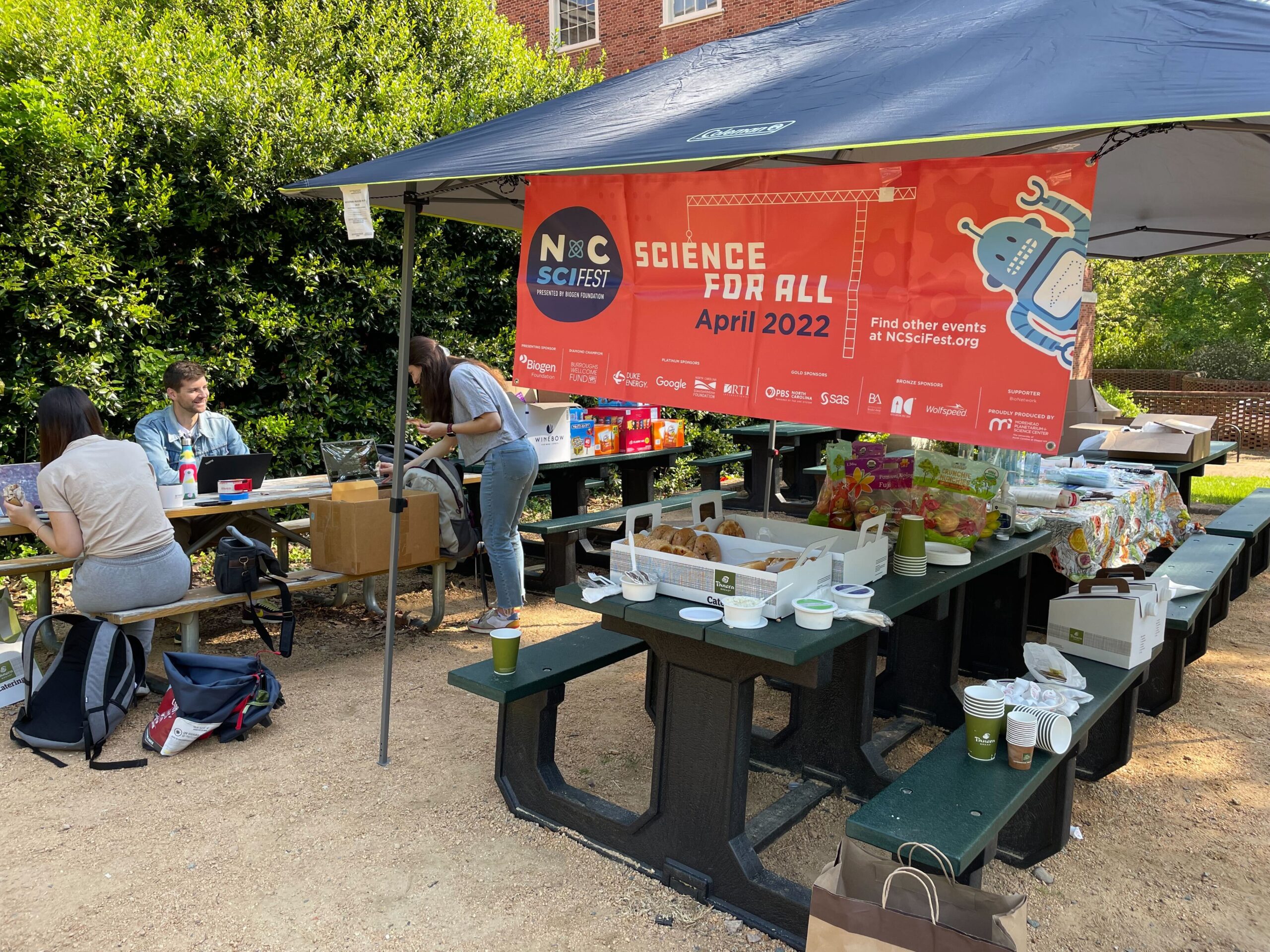
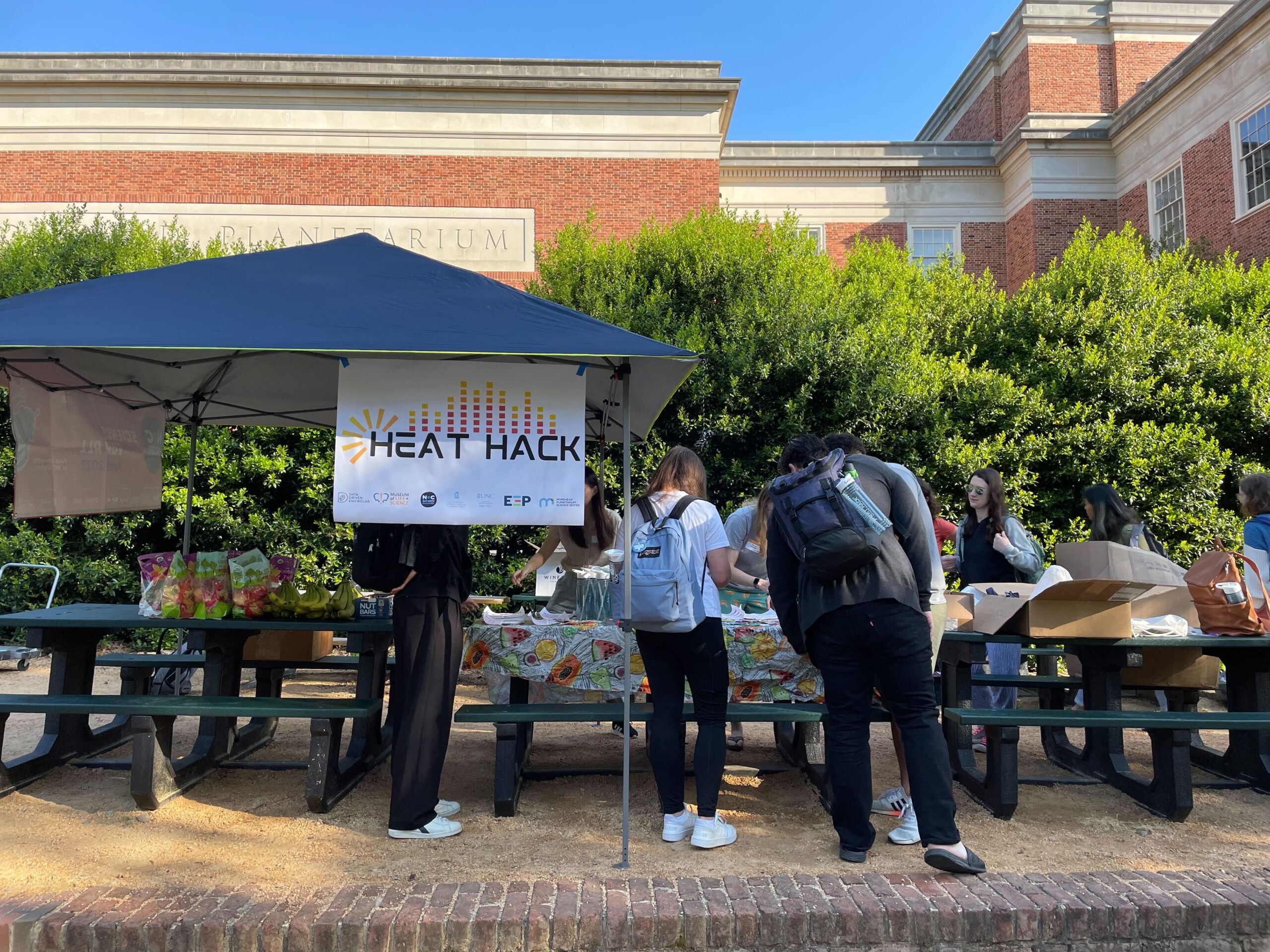

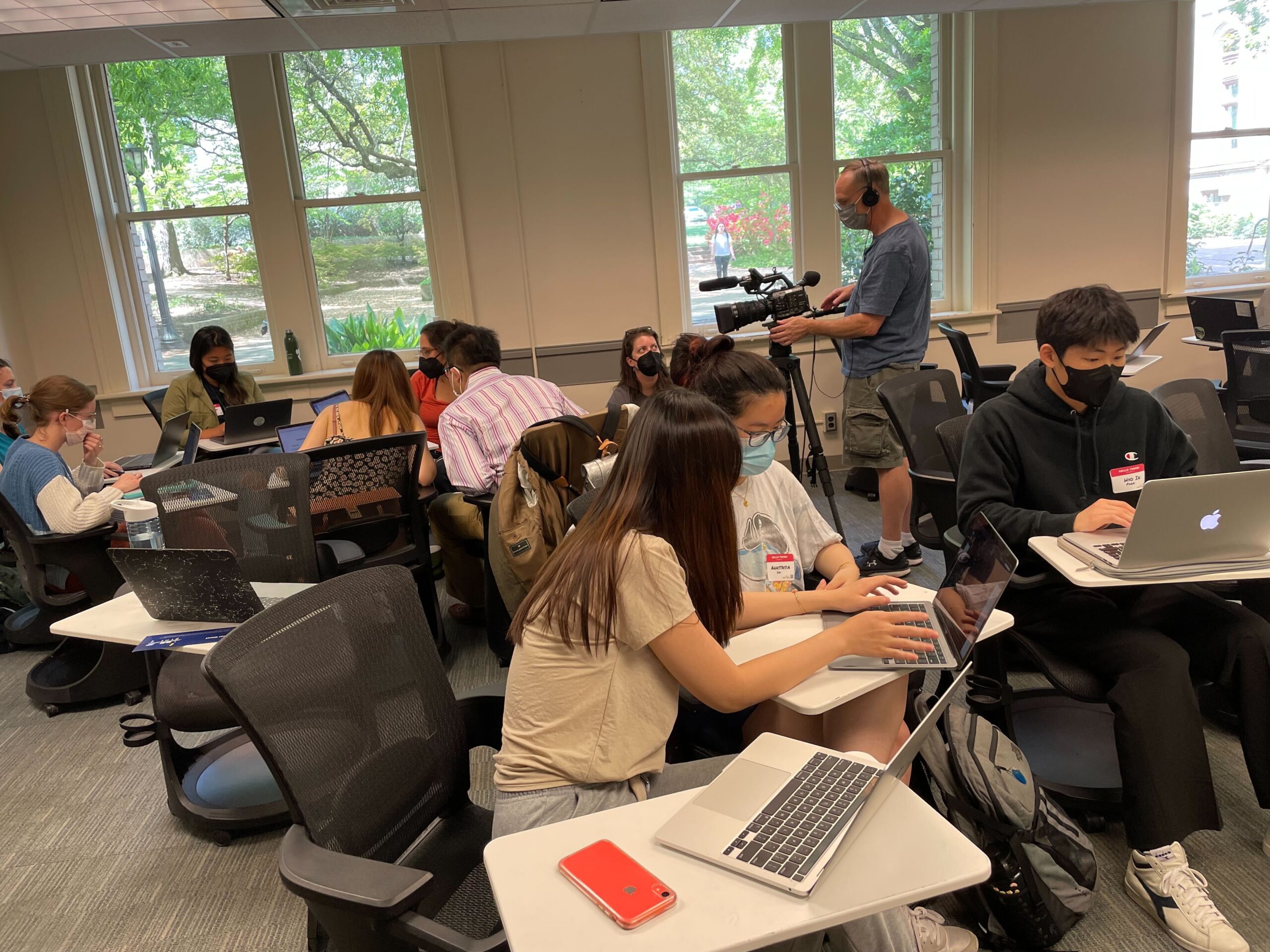
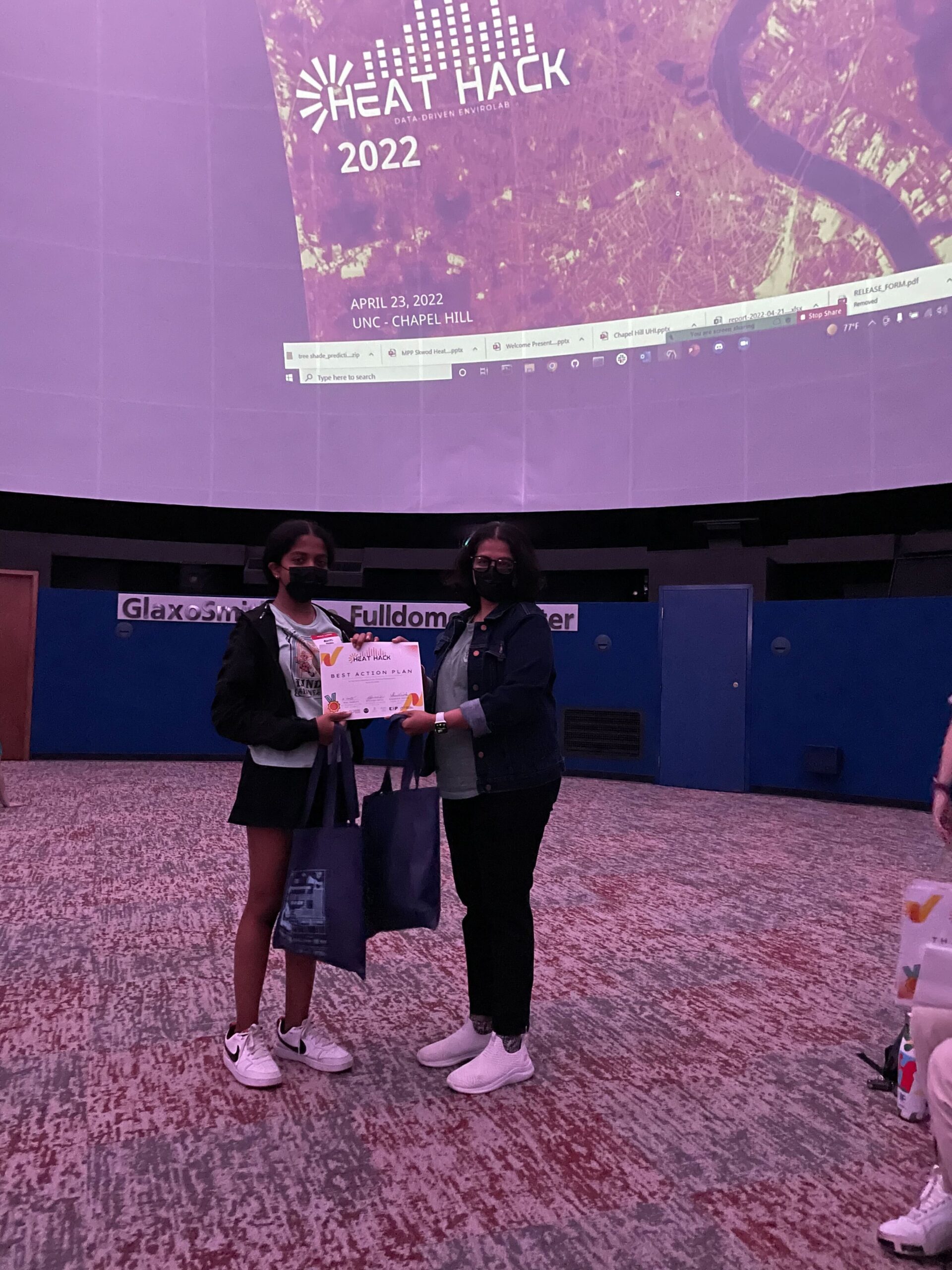
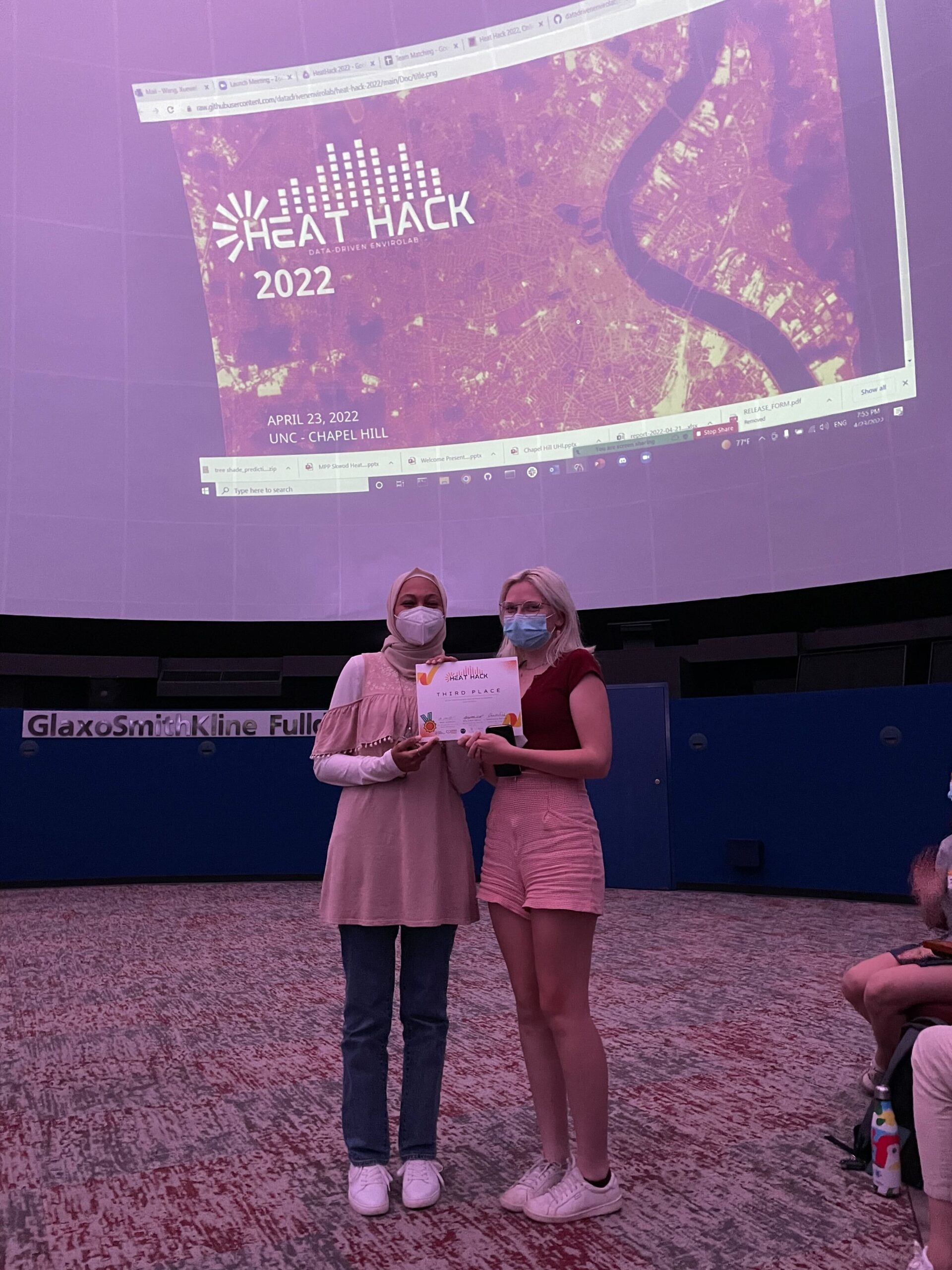
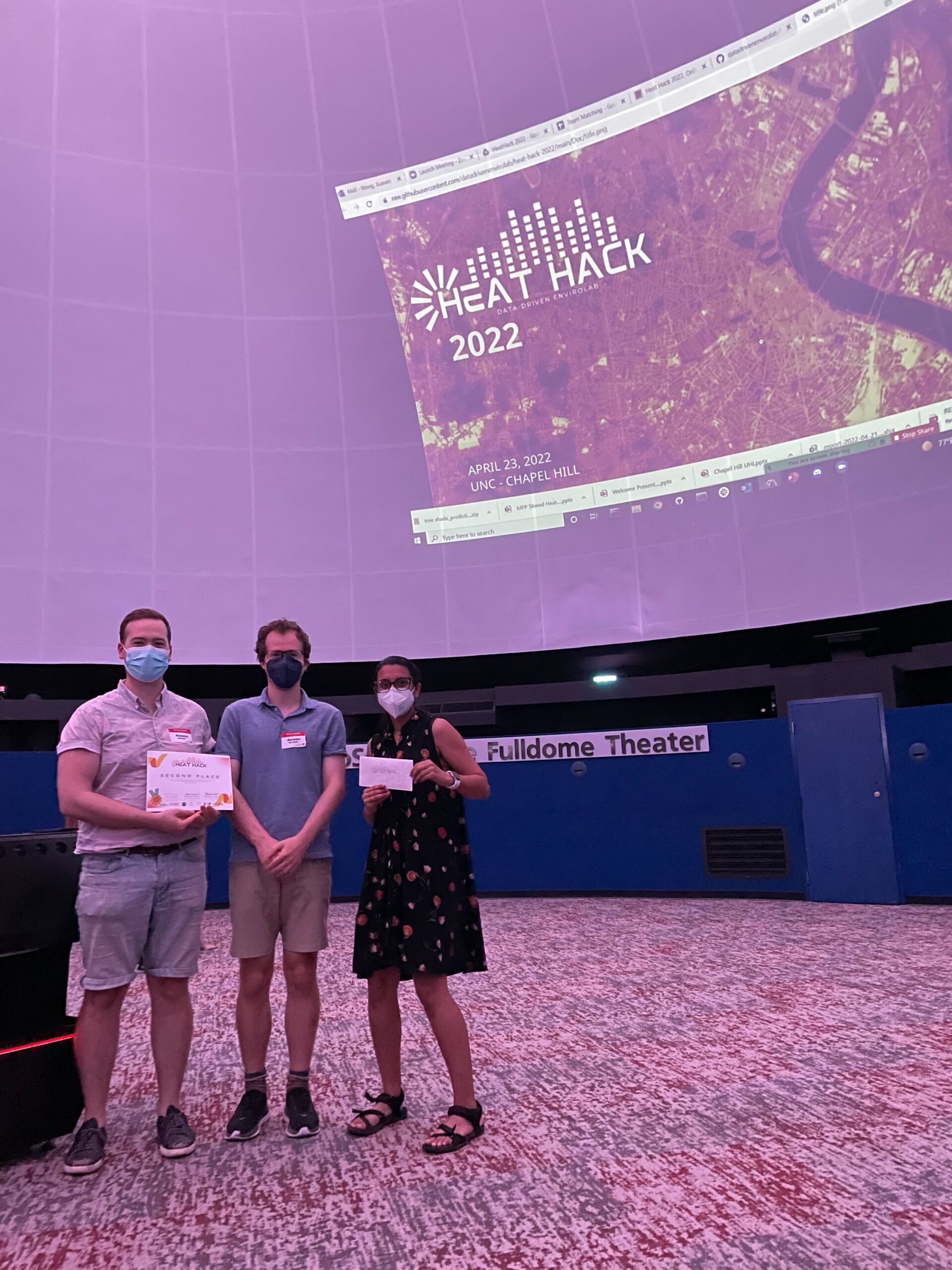
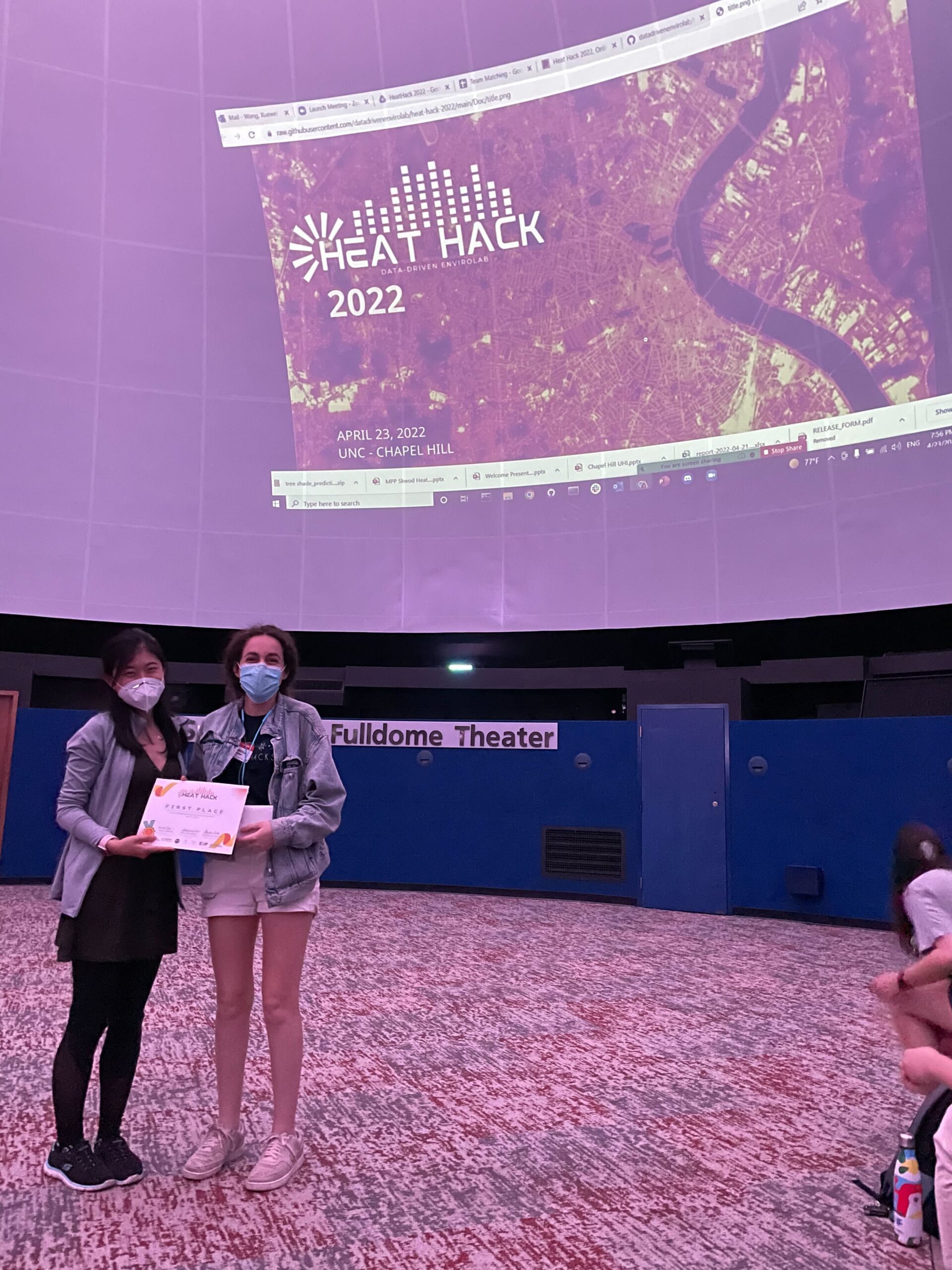
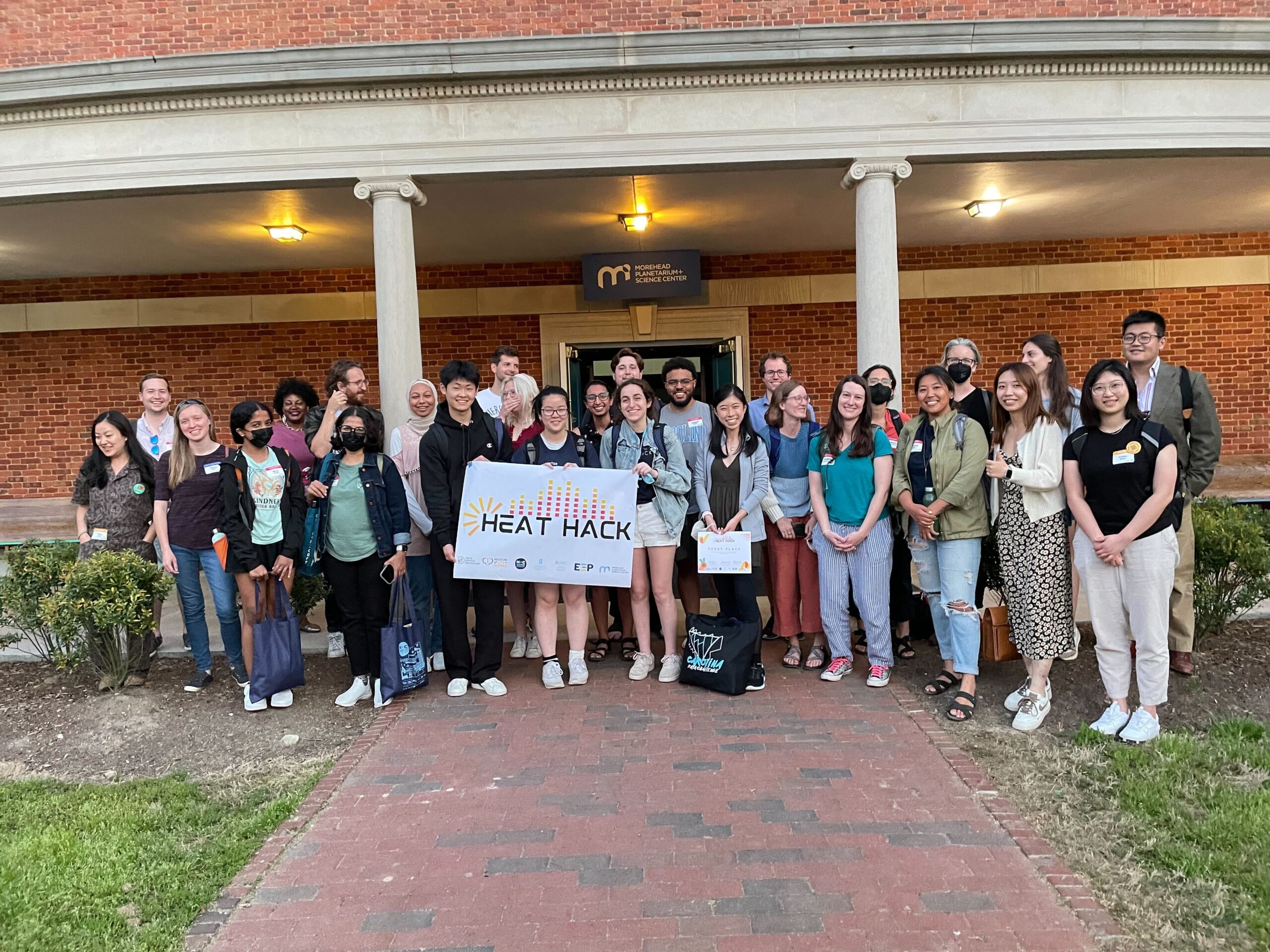
Trackbacks/Pingbacks